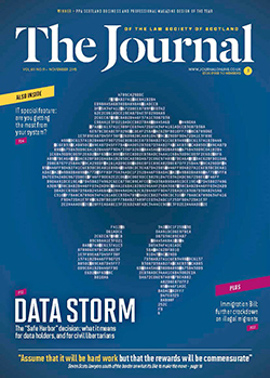What future for employment tribunal fees?

When the Scottish Government launched its Programme for Government in September 2015, it announced its intention to abolish employment tribunal (ET) fees in Scotland as part of the transfer of jurisdiction over employment tribunals to Scotland, as a means of “ensuring that employees have a fair opportunity to have their case heard”. This is a significant development for practitioners and potential users of the ET alike, not least given the dramatic falls we have seen in the number of ET claims since fees were introduced (between 50% and 90% depending on the type of claim, with an average decline of around 67% across the board for single claims).
Other than a commitment to abolish fees when “we [the Scottish Government] are clear on how the transfer of powers and responsibilities will work”, there is no schedule outlined as yet. We would expect a consultation on the matter. Therefore, while there is a commitment to consult, there are no clear plans on any future consultation or timescales at the moment.
UK-wide review
In the meantime, since June the UK Government has been carrying out its own review into the ET system and is expected to report its findings later in the year. The statement accompanying the announcement of the long-awaited review said that it would consider how effective fees have been in meeting their “original
The Government stated, somewhat controversially at the time: “Fees are not intended to deter individuals from bringing a claim, and nor do we believe they will, given the
We are told that the review will take into account a wide range of evidence, including tribunal data on case volumes; case progression; qualitative research on the views of court and tribunal users; and to what extent there has been
Its submission concluded: “Employment tribunal judges in Scotland consider the fee system has acted to significantly reduce access to justice.” Meanwhile, the President and regional employment judges of Employment Tribunals (England & Wales) have recommended that respondents should become liable to pay response fees and hearing fees, with a nod to the model in civil litigation in Scotland. The Law Society of Scotland (LSS) made its views known as far back as July 2014, when the body urged the Scottish and UK Governments to rethink employment tribunal fees, having canvassed its members for their views on the impact of the fees.
Judicial review
Since their introduction, tribunal fees have been the subject of repeated judicial review proceedings. To
Whether the Government review or legal challenges will lead to any change in employment tribunal fees in England & Wales remains at this point unknown. However, it is anticipated that the abolition of fees in Scotland will not only lead to an increase in
In this issue
- Appropriate adults and defence agents: who does what?
- Buying from a housing association: why consent matters
- Harassment: a civil claim?
- A welcome abroad: EYBA in London
- Reading for pleasure
- Opinion: David Faith
- Book reviews
- Profile
- President's column
- ScotLIS gets the green light
- People on the move
- Storm over Safe Harbor
- Light on a murky world
- Southern horizons
- Mediation minefield
- Migrants: no way to turn?
- The technological edge
- As our suppliers see us
- More rules to grapple with
- Fraud and divorce – a Scottish Sharland?
- What future for employment tribunal fees?
- Heading for a showdown on hard won human rights?
- Taxing question of relief
- Scottish Solicitors Discipline Tribunal
- How far can we rely on the register?
- All part of the game
- Law reform roundup
- From the Brussels office
- Poverty: a new front in the war
- Damage limitation: working it out
- Ask Ash
- A lawyer's lament
- Appreciation: Michael Scanlan






